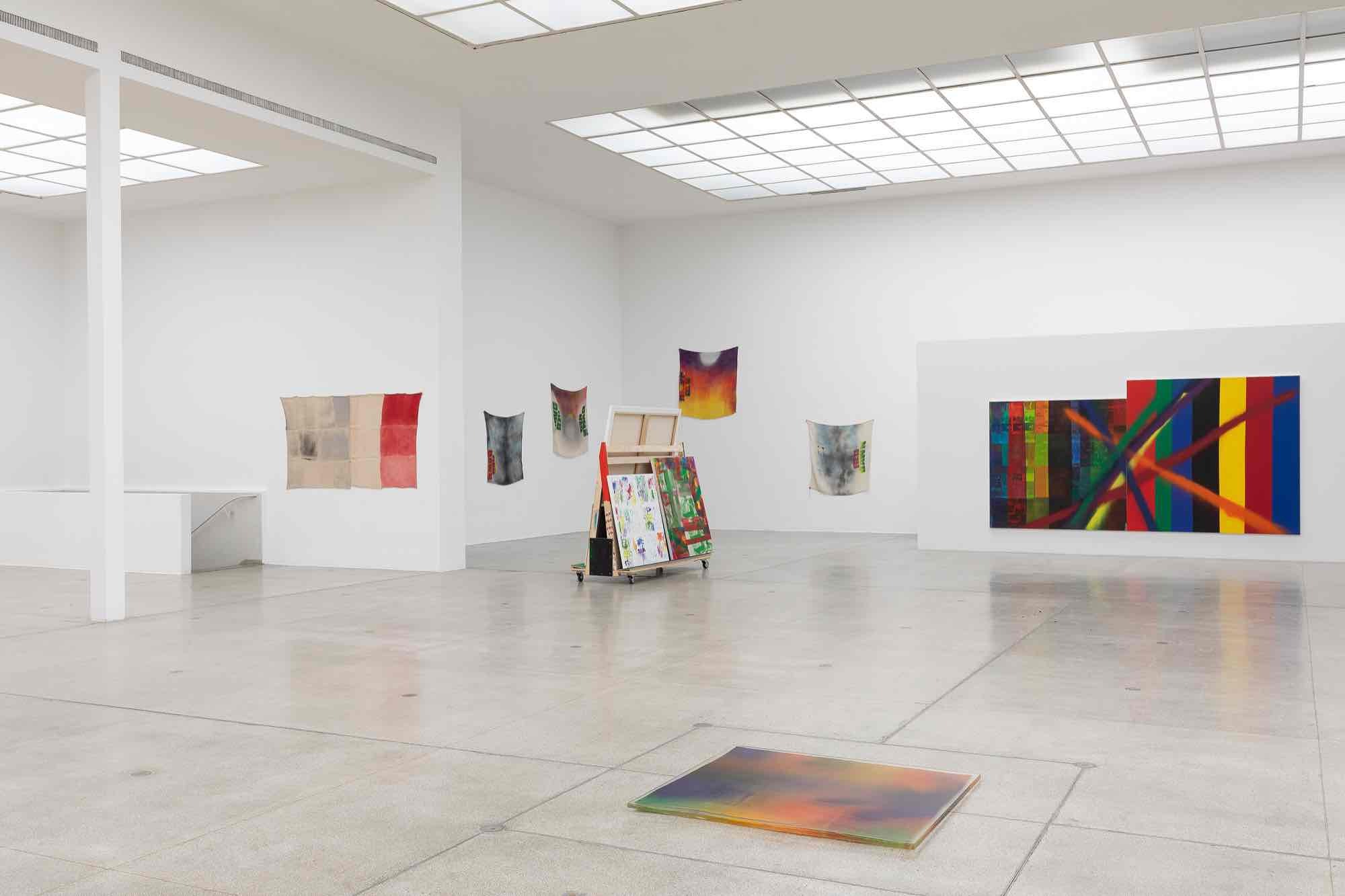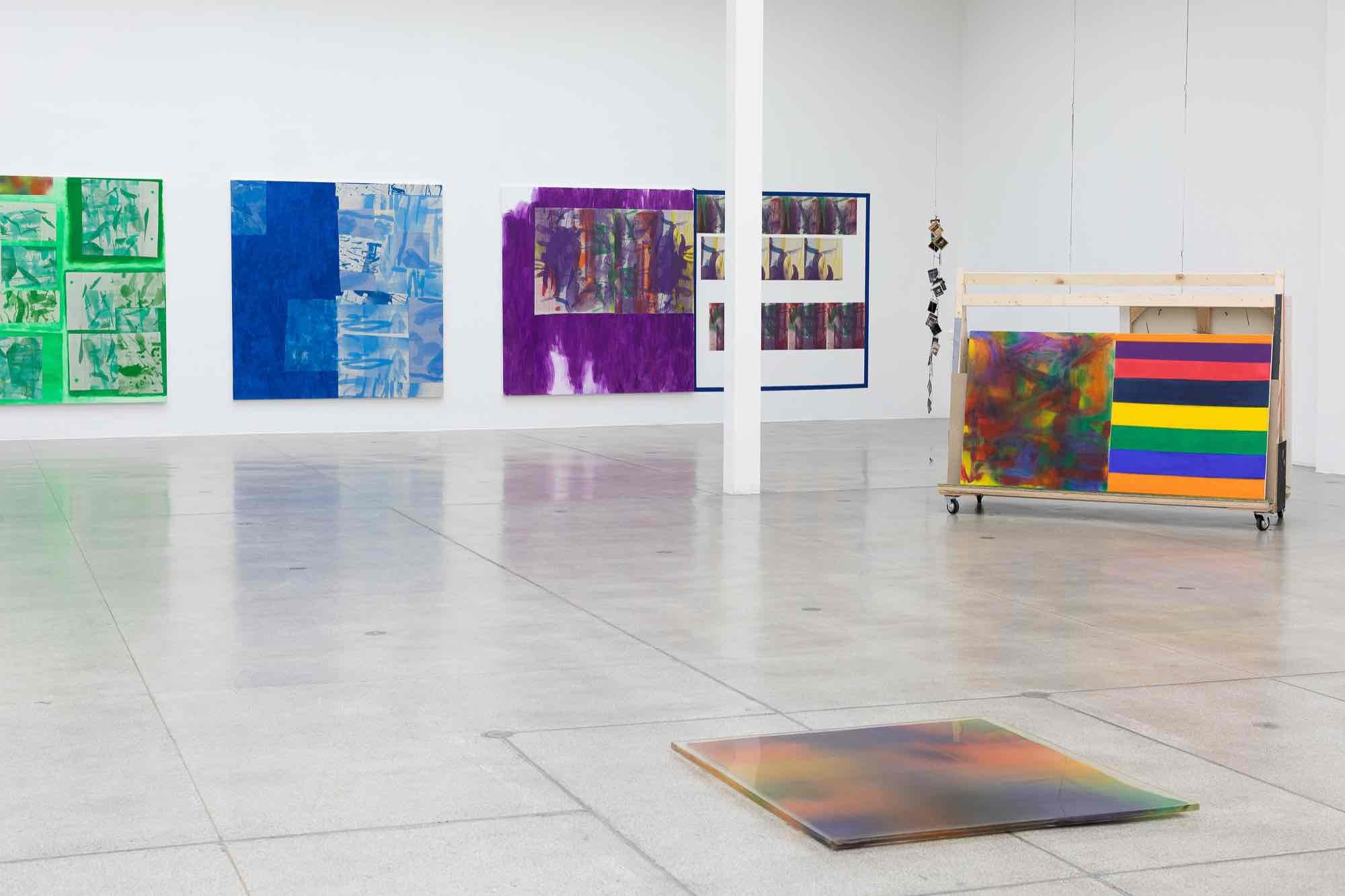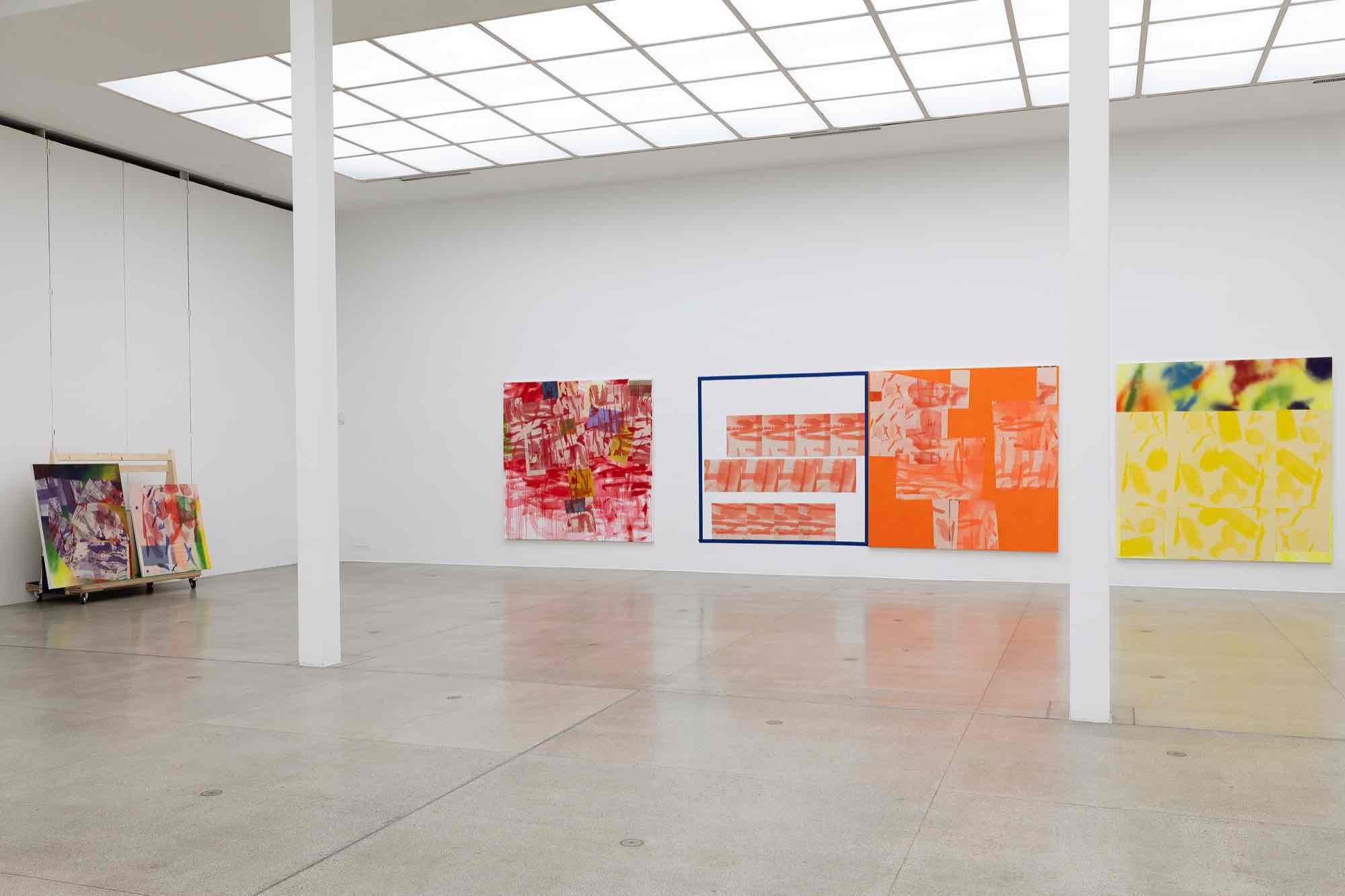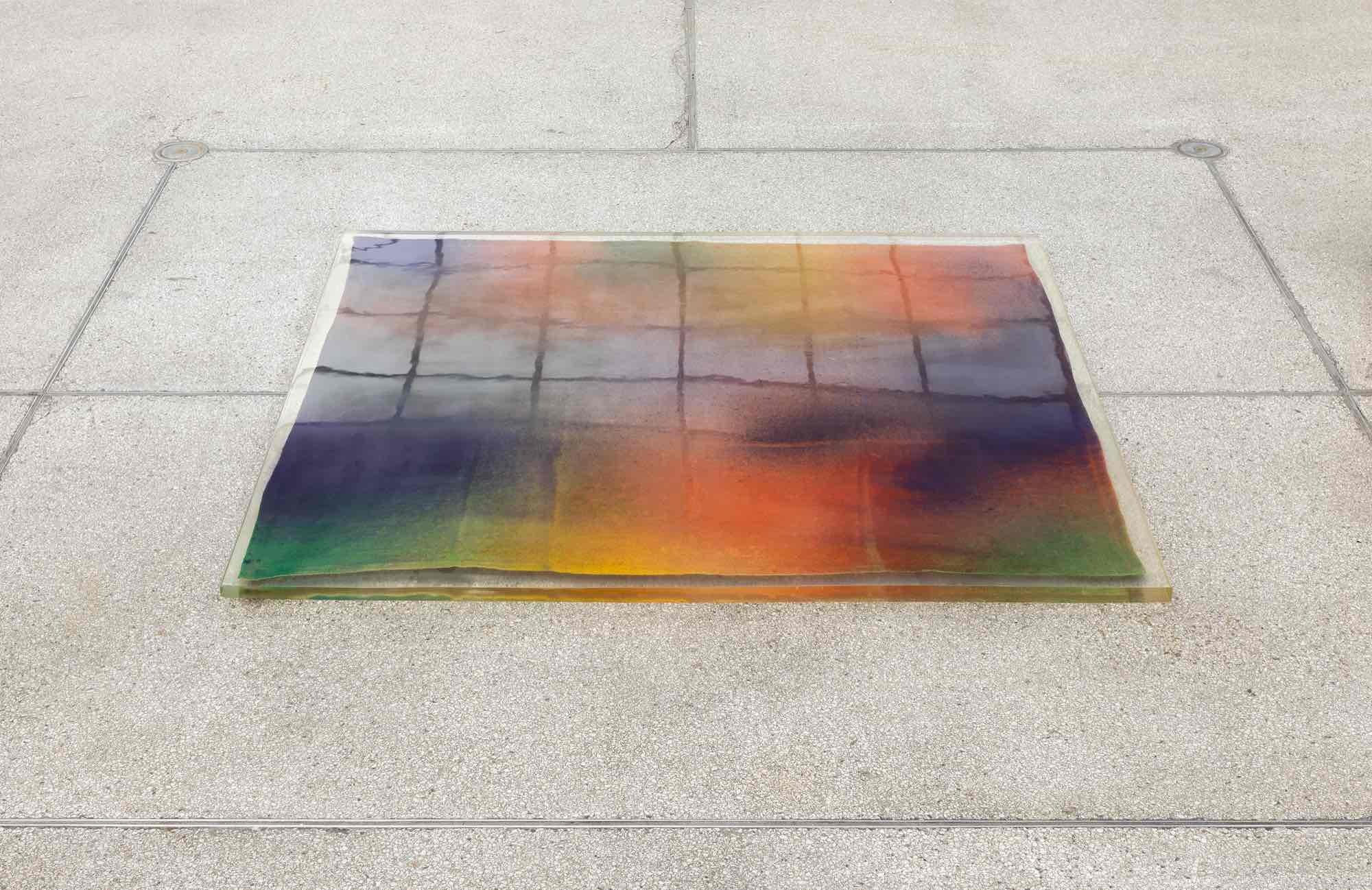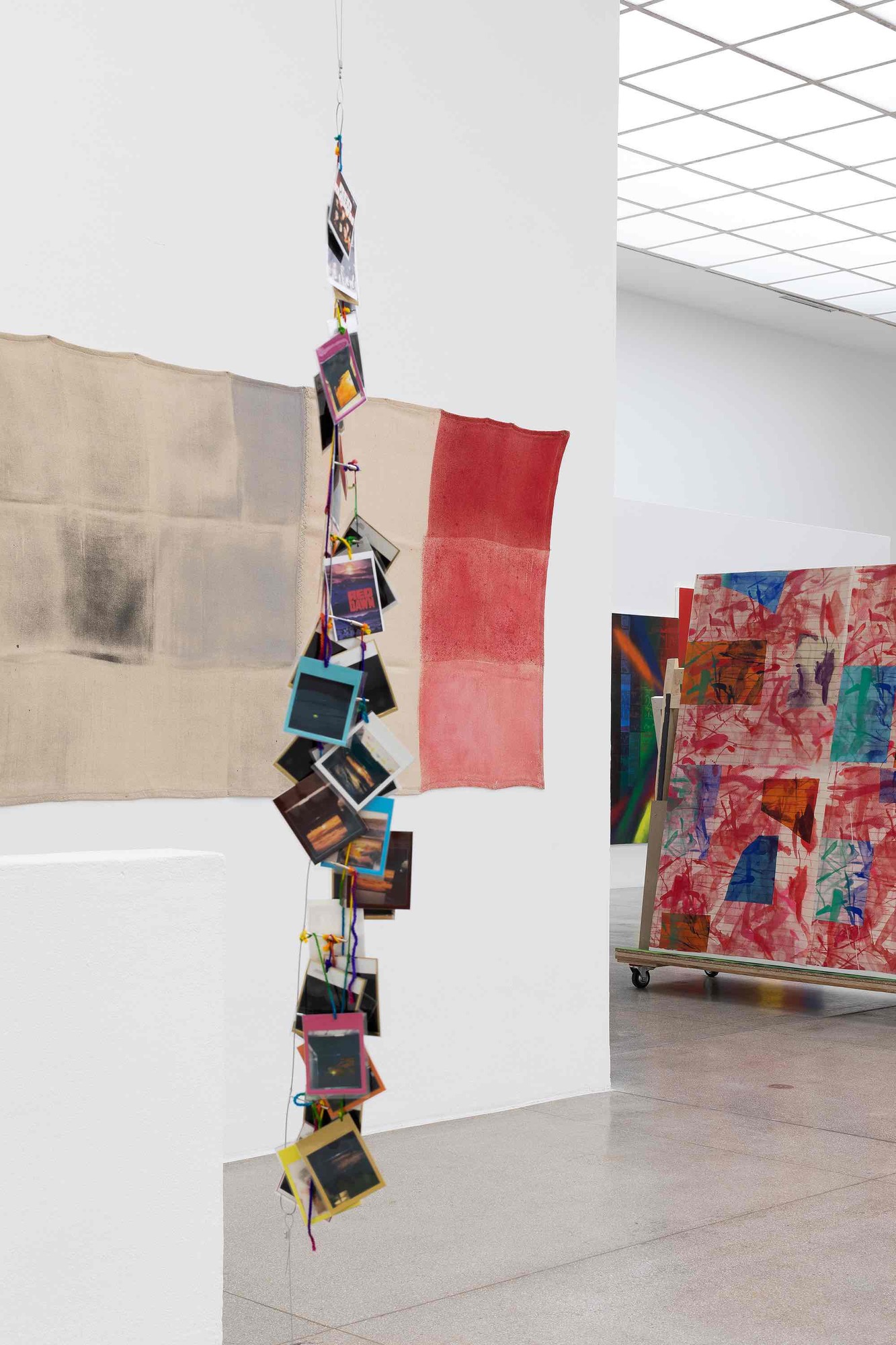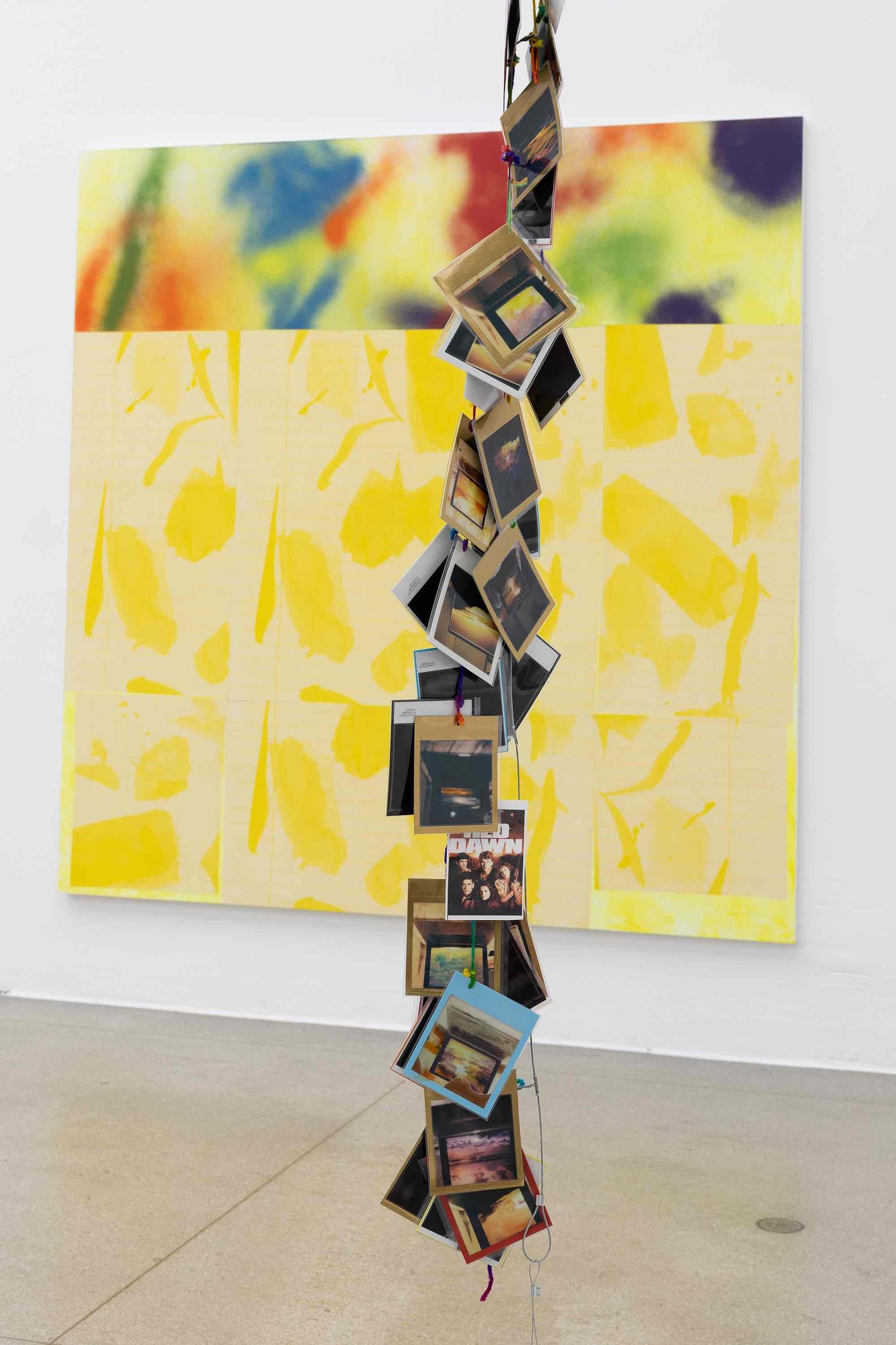Rochelle Feinstein
The Today Show
06 Dec 2024 - 23 Feb 2025
“Humor, irony, sex, human stupidity, commerce, art, and politics are central to my inquiry. My work will not offer a placebo for trauma, self-care, healing, or depict illusory spaces. That is a task for others. My preference, hope, and interest are to provide an opportunity for reflection on the state of affairs of a culture, communicated through painting language.” (Rochelle Feinstein)
For over forty years, the American painter Rochelle Feinstein has developed an oeuvre that infiltrates abstract painting with political, social and environmental concerns. Throughout a series of diverse yet thematically interwoven groups of works, Feinstein cuts, flips, and rearranges printed gestural marks that are then collaged into paintings; she also makes sculptures and prints out of everyday materials. The Today Show presents a range of newly created works that circulate around the question of how to connect canvas, color and gesture with the specific personal and public conditions of our time.
Feinstein was, until her recent retirement, a professor of painting and printmaking at Yale School of Art. Her works engage with different modes of abstraction, like the grid or color-field painting, all the while letting life crash against modernist notions of art’s autonomy from external reality.
Whereas twentieth-century modernists propagated a strict separation of painting from the outside world, reducing the medium to colors on a flat surface, Feinstein’s abstractions are intimately connected to the world in all of its chaos: here, art is not a way to escape life’s terrors, nor a realm to immerse oneself in a “pure” and detached perceptual experience. The works therefore confront us with the mess of our reality, its inconsistencies, offensiveness and affections. In this manner, The Today Show also recalls the name of a news show; a humorous hint to the works’ diverse references to contemporary politics and pop culture. Two Maps (2024), for example, deals with the bankrupt two-party system in the U.S. The diptych Tagged (2019) is dominated by a rainbow palette with screen-printed black and white photographs of Italian boxing matches from the 1940s. While referencing the rawness of fight culture and graffiti, the work toys with colors that offer a hopeful symbol of joy and empowerment, and its simultaneous hollowness and erosion through its commodification. Golden Moments Silver Linings (2021–24) consists of a thin column that recalls the display stands out front of almost every tourism kiosk around the world. Attached are polaroid sunsets, collected through a Google search, each marked with dynamic brush strokes. The work evokes the longing for individuality and romanticism, while also revealing the exchangeability and clichéd nature of that endeavor.
For Feinstein, painting is not a window to a closed illusionary world but fundamentally situated in the here and now. Its material conditions and the process of art-making are a vital aspect of the presentation, as seen in the blue painter’s tape that frames a series of works in the exhibition, or when the canvases are not stretched but rather hang on the wall like cloth. In the series Red Dawn (2021–24)—a reference to the dystopian action films of the same title, as well as to the current blockbuster Civil War—one can still see the grid-like folding lines of the cheap drop cloths purchased and shipped from a giant Amazon warehouse. Other works are presented on trollies that are usually used to transport paintings from storage vaults to galleries but are then quickly hidden from view. Feinstein makes it clear: she is keenly aware of painting’s alleged higher cultural values. And yet, one can feel the artist’s belief in the potential of her chosen medium to work at the heart of our shared world.
Concurrent with the exhibition The Today Show, a publication features in-depth essays by Kerstin Stakemeier and Damian Lentini, as well as a unique artistic intervention by Rochelle Feinstein.
Curated by Damian Lentini
For over forty years, the American painter Rochelle Feinstein has developed an oeuvre that infiltrates abstract painting with political, social and environmental concerns. Throughout a series of diverse yet thematically interwoven groups of works, Feinstein cuts, flips, and rearranges printed gestural marks that are then collaged into paintings; she also makes sculptures and prints out of everyday materials. The Today Show presents a range of newly created works that circulate around the question of how to connect canvas, color and gesture with the specific personal and public conditions of our time.
Feinstein was, until her recent retirement, a professor of painting and printmaking at Yale School of Art. Her works engage with different modes of abstraction, like the grid or color-field painting, all the while letting life crash against modernist notions of art’s autonomy from external reality.
Whereas twentieth-century modernists propagated a strict separation of painting from the outside world, reducing the medium to colors on a flat surface, Feinstein’s abstractions are intimately connected to the world in all of its chaos: here, art is not a way to escape life’s terrors, nor a realm to immerse oneself in a “pure” and detached perceptual experience. The works therefore confront us with the mess of our reality, its inconsistencies, offensiveness and affections. In this manner, The Today Show also recalls the name of a news show; a humorous hint to the works’ diverse references to contemporary politics and pop culture. Two Maps (2024), for example, deals with the bankrupt two-party system in the U.S. The diptych Tagged (2019) is dominated by a rainbow palette with screen-printed black and white photographs of Italian boxing matches from the 1940s. While referencing the rawness of fight culture and graffiti, the work toys with colors that offer a hopeful symbol of joy and empowerment, and its simultaneous hollowness and erosion through its commodification. Golden Moments Silver Linings (2021–24) consists of a thin column that recalls the display stands out front of almost every tourism kiosk around the world. Attached are polaroid sunsets, collected through a Google search, each marked with dynamic brush strokes. The work evokes the longing for individuality and romanticism, while also revealing the exchangeability and clichéd nature of that endeavor.
For Feinstein, painting is not a window to a closed illusionary world but fundamentally situated in the here and now. Its material conditions and the process of art-making are a vital aspect of the presentation, as seen in the blue painter’s tape that frames a series of works in the exhibition, or when the canvases are not stretched but rather hang on the wall like cloth. In the series Red Dawn (2021–24)—a reference to the dystopian action films of the same title, as well as to the current blockbuster Civil War—one can still see the grid-like folding lines of the cheap drop cloths purchased and shipped from a giant Amazon warehouse. Other works are presented on trollies that are usually used to transport paintings from storage vaults to galleries but are then quickly hidden from view. Feinstein makes it clear: she is keenly aware of painting’s alleged higher cultural values. And yet, one can feel the artist’s belief in the potential of her chosen medium to work at the heart of our shared world.
Concurrent with the exhibition The Today Show, a publication features in-depth essays by Kerstin Stakemeier and Damian Lentini, as well as a unique artistic intervention by Rochelle Feinstein.
Curated by Damian Lentini

